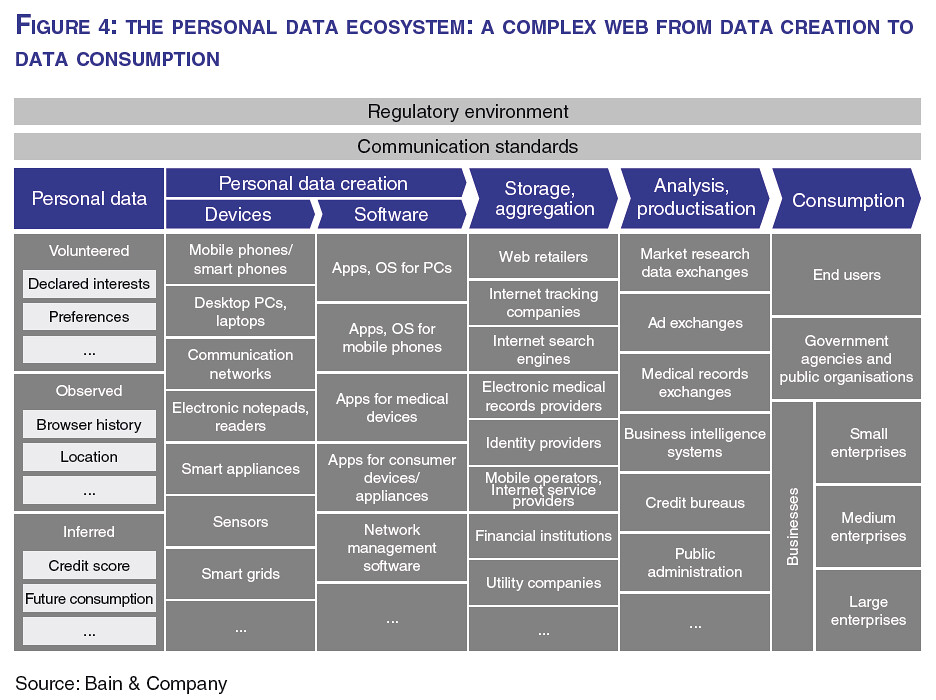When titans of industry and state meet, worlds can change. The World Economic Forum launched a three year “Rethinking Personal Data” project, including data portability. Their first report, Personal Data: The Emergence of a New Asset Class, shows their direction.
A new asset class? That’s a telling use of language. Investopedia refers to securities with “similar characteristics, behave similarly in the marketplace, and are subject to the same laws and regulations.” Stocks, bonds, cash, real estate, and intellectual property are common asset classes. Some managerial accountants defined human capital as a new asset class.
Securities and IP go back hundreds of years. As a new asset class, personal data will have its own characteristics and market behavior, its own laws and regulations. We’ve barely mapped this new landscape. U.S. law doesn’t even recognize a theory of rights associated with personal data. So there is a great deal of work ahead. Some of that is ours, at the DataPortability Project. It falls to the DPP to crisply define data portability’s purpose, why it matters, how it fits into lives lived digitally. That’s some of our work at next week’s Internet Identity Workshop in Mountain View. [Skype me if you’d like an IIW discount code.]
Speed matters. A look at the chart below, from Bain, shows a rush to capitalize on billion dollar markets in data.
If we don’t embed data portability values and vision into the new identity and personal data infrastructure, it could take decades to achieve our goals.
So read WEF’s first report, below the fold. See where their thinking is now. And ask: where can we amplify their commitment to personal data portability?
WEF ITTC Personal Data New Asset Report 2011
